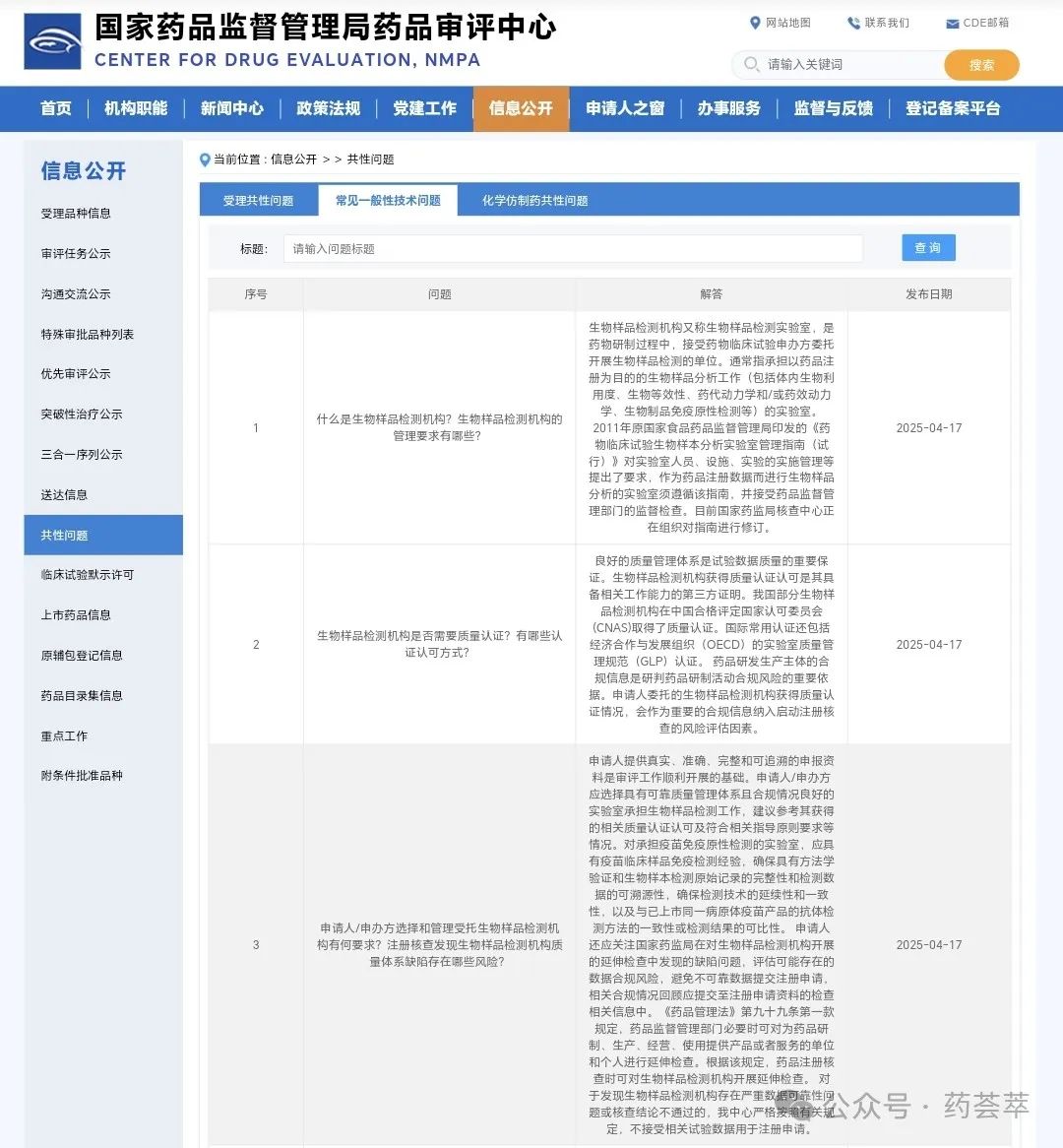
1. What is a biological sample testing institution? What are the management requirements for biological sample testing institutions?
Answer: Biological sample testing institutions, also known as biological sample testing laboratories, are units commissioned by drug clinical trial applicants to conduct biological sample testing during the drug development process. Usually refers to laboratories that undertake biological sample analysis work for the purpose of drug registration, including in vivo bioavailability, bioequivalence, pharmacokinetics and/or pharmacodynamics, immunogenicity testing of biological products, etc. The "Guidelines for the Management of Laboratory for Biological Sample Analysis in Drug Clinical Trials (Trial)" issued by the former State Food and Drug Administration in 2011 set requirements for the management of laboratory personnel, facilities, and experiments. Laboratories conducting biological sample analysis as drug registration data must comply with the guidelines and accept supervision and inspection from drug regulatory authorities. At present, the Verification Center of the National Medical Products Administration is organizing the revision of the guidelines.
Do biological sample testing institutions require quality certification? What are the certification and accreditation methods?
Answer: A good quality management system is an important guarantee for the quality of experimental data. Obtaining quality certification and accreditation for biological sample testing institutions is a third-party proof of their relevant work capabilities. Some biological sample testing institutions in China have obtained quality certification from the China National Accreditation Service for Conformity Assessment (CNAS). International commonly used certifications also include the Good Laboratory Practice (GLP) certification from the Organization for Economic Cooperation and Development (OECD). The compliance information of drug development and production entities is an important basis for assessing the compliance risks of drug development activities. The quality certification obtained by the biological sample testing institution commissioned by the applicant will be included as important compliance information in the risk assessment factors for initiating registration verification.
What are the requirements for the applicant/sponsor to select and manage entrusted biological sample testing institutions? What are the risks of discovering quality system defects in biological sample testing institutions during registration verification?
Answer: The applicant's provision of truthful, accurate, complete, and traceable application materials is the foundation for the smooth progress of the evaluation work. The applicant/sponsor should choose a laboratory with a reliable quality management system and good compliance to undertake the biological sample testing work. It is recommended to refer to the relevant quality certification and accreditation obtained and the compliance with relevant guiding principles. For laboratories responsible for vaccine immunogenicity testing, they should have experience in clinical sample immunological testing of vaccines, ensuring methodological validation and the integrity of original records of biological sample testing, traceability of testing data, continuity and consistency of testing techniques, as well as consistency with antibody testing methods or comparability of testing results with already marketed vaccines for the same pathogen. The applicant should also pay attention to the defects found by the National Medical Products Administration in the extended inspection of biological sample testing institutions, evaluate the possible data compliance risks, avoid submitting unreliable data for registration applications, and review the relevant compliance situation in the inspection related information of the registration application materials. Article 99, Paragraph 1 of the Drug Administration Law stipulates that drug regulatory authorities may, when necessary, conduct extended inspections on units and individuals who provide products or services for drug research, production, operation, and use. According to this regulation, extended inspections can be conducted on biological sample testing institutions during drug registration verification. For biological sample testing institutions that have serious data reliability issues or verification conclusions that do not pass, our center strictly follows relevant regulations and does not accept relevant experimental data for registration applications.
相关推荐
- 2026 Guangzhou Medical Expo Scheduled for August! Building the Core Engine for the Greater Bay Area's Healthcare Industry. 2025-11-07
- Full-chain Empowers Industrial Innovation! The 2025 Guangzhou Medical Expo Successfully Concludes Today 2025-08-24
- Grand Opening of 2025 Guangzhou Medical and Health Industry Expo: Jointly Paint a New Blueprint for Health and Play the March of Industrial Endeavor 2025-08-22
- Over 400 hospitals and enterprises gather in the City of Rams! Guangzhou Medical Expo has become a highland for the first launches of innovative pharmaceuticals and medical devices. 2025-06-13

